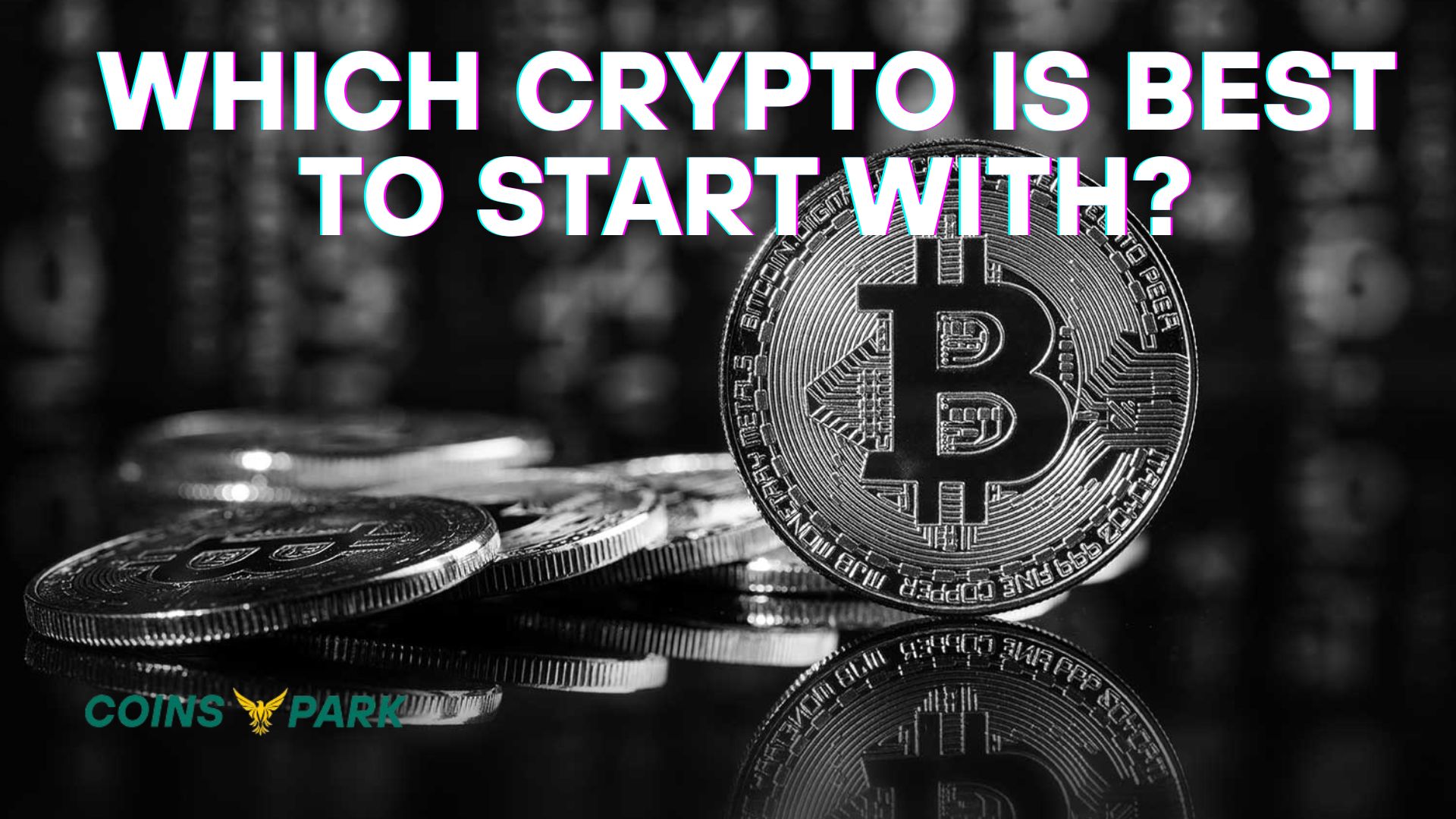Which Crypto Is Best to Start With? Because they provide decentralized alternatives to established banking systems, cryptocurrencies have completely changed the financial industry. Selecting the best cryptocurrency to start with can be difficult if you’re new to this field. Starting with something dependable, accessible, and reasonably consistent is crucial because there are thousands of coins and tokens available, each with unique use cases, prices, and hazards. The best cryptocurrency to start with and why are examined in this tutorial.
Understanding What Makes a Good Starter Crypto.
Before diving into specific coins, it’s essential to understand the characteristics of a good starting cryptocurrency:
- Reputation and Trust: The crypto should have a strong community, development team, and history.
- Liquidity: It should be widely traded, ensuring you can buy and sell easily.
- Security: The blockchain should be secure and decentralized to avoid hacks or manipulations.
- Educational Resources: Ample information should be available to learn from.
- Utility and Real Use: A cryptocurrency with real-world applications provides more value in the long run.
Best Cryptocurrencies for Beginners.
Let’s look at some of the multiple beginner-friendly cryptocurrencies, starting with the most recommended.
Bitcoin (BTC) – The Pioneer
Why It’s Good for Beginners:
- Bitcoin is the first and most well-known cryptocurrency.
- It has the highest market capitalization and is accepted widely across platforms.
- It’s less volatile than smaller altcoins and regarded as “digital gold.”
Pros:
- Extremely secure and decentralized.
- Large community and network effect.
- Easy to buy, store, and sell.
Cons:
- Slower transaction speed and higher fees.
- Primarily a store of value, not perfect for everyday transactions.
Verdict: Start with Bitcoin if you want the most established and least risky entry into crypto.
Ethereum (ETH) – The Smart Contract Giant
Why It’s Good for Beginners:
- Ethereum is the second-largest crypto and the basis of most decentralized applications (dApps).
- It powers smart contracts, NFTs, and DeFi projects.
Pros:
- Large ecosystem with many learning opportunities.
- Continual upgrades (e.g., Ethereum 2.0) improve scalability and reduce energy usage.
- Accepted on almost every exchange and wallet.
Cons:
- Higher gas fees during network congestion.
- More complex than Bitcoin due to its programmability.
Verdict: Ethereum is excellent for beginners who want to explore the broader blockchain ecosystem.
Solana (SOL) – Fast and Scalable
Why It’s Good for Beginners:
- Known for high-speed and low-cost transactions.
- Great for exploring NFTs, DeFi, and dApps with minimal fees.
Pros:
- Extremely fast and cheap transactions.
- Active developer and user community.
- Suitable for gaming and metaverse applications.
Cons:
- Has experienced network outages in the past.
- Less decentralized compared to Ethereum or Bitcoin.
Verdict: Choose Solana if you want a fast, cheap key to modern crypto applications.
Polygon (MATIC) – Ethereum’s Layer 2 Solution
Why It’s Good for Beginners:
- Built to improve Ethereum’s scalability by delivering faster and cheaper transactions.
Pros:
- Integrates seamlessly with Ethereum.
- Very low fees.
- Strong community and growing ecosystem.
Cons:
- Still reliant on Ethereum’s main chain.
- Complex for absolute beginners without Ethereum knowledge.
Verdict: Polygon is a great beginner option if you’re interested in Ethereum but want lower fees.
Litecoin (LTC) – The Silver to Bitcoin’s Gold
Why It’s Good for Beginners:
-
One of the elder cryptocurrencies, often referred to as a faster alternative to Bitcoin.
Pros:
- Low transaction fees and fast confirmation times.
- Simple to understand and use.
- Listed on nearly every crypto exchange.
Cons:
- Fewer use cases compared to Ethereum or Solana.
- Less developer activity in recent years.
Verdict: Litecoin is great for beginners seeking a straightforward, low-cost crypto experience.
Honorable Mentions.
Here are a few more beginner-friendly options:
- Cardano (ADA): Focused on research-driven development and scalability.
- Ripple (XRP): Designed for fast and low-cost cross-border transactions.
- Chainlink (LINK): Connects smart contracts with real-world data.
While these are excellent projects, they may be more complex or less user-friendly for complete beginners.
How to Get Started.
Once you’ve chosen your starting cryptocurrency, follow these steps:
- Choose a Reputable Exchange: Platforms like Binance, Coinbase, or Kraken are ideal for beginners.
- Secure a Wallet: Use software wallets (Trust Wallet, MetaMask) or hardware wallets (Ledger, Trezor) for better security.
- Start Small: Invest only what you can afford to lose and get used to market behavior.
- Educate Yourself: Follow crypto news, join communities, and learn basic technical analysis.
- Stay Safe: Be wary of scams, phishing links, and too-good-to-be-true offers.
Conclusion.
Bitcoin is the easiest and safest cryptocurrency for most novices to begin using. It introduces you to the ecosystem with no risk and gives you a firm grasp of how cryptocurrency operates. If you’re interested in decentralized apps and smart contracts, Ethereum is the next best thing. Depending on your objectives and areas of interest, you can then investigate others like Solana, Polygon, or Litecoin.
Recall that selecting the correct coin is only one aspect of success in the cryptocurrency space; other strategies include maintaining awareness, practicing security, and expanding your understanding over time. Think long-term, start small, and relish the adventure of digging into the world of digital assets.




